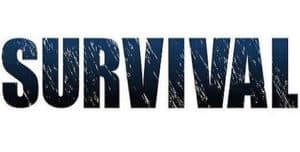We all make mistakes on a daily basis and most of the time it’s not that big of a deal — you live, learn & move on the next day. However, in a survival situation mistakes can quite literally mean life or death.
You aren’t going to be able to prepare for everything and you almost certainly will find that you have made some mistakes when disaster does strike — that is inevitable. But you can minimize and possibly even avoid those mistakes by learning from what others have done in the past, or what experts have found to be problematic.
Therefore, here are 7 (potential) mistakes that many new survivalists/preppers make and how you can avoid them:
1) Losing Motivation
A lot of survivalists go through this and you may have too. Many survival skills students start out with extreme enthusiasm — they go through some training info, get a survival kit, put together a bug out bag, buy some defense tools, and so on — but the excitement can wear off pretty quickly. The key to maintaining your motivation is to constantly learn new survival skills, slowly build your storage supply, revise your emergency plan often, and continue to create & adapt.
Also, remember that you are in this for the long haul and you will be glad that you are prepared when SHTF. Stay excited, follow your instincts, and look at it as a lifestyle choice — not a hobby.
2) Procrastinating
Start small, start today. Many new survivalists put off implementing their preparedness program because they are intimidated by the amount of work or money involved. Even by taking small steps to get prepped, you will be better equipped than most people.
Being prepared for disaster and mastering a few essential wilderness survival skills will cost you very little to get started. Don’t let money or time be an excuse for not starting.
3) Over Emphasis on Weapons & Gear
Many new survivalists spend hundreds or even thousands of dollars on weapons and related gear, yet have only a two-week supply food and no water filter.
Yes, defenses and gear are important, but you aren’t going to survive very long without having a large enough reserve of food and water (or the ability to get it at least). There is some great gear on the market that will make your life easier in a survival situation — most often your best bet is to get a top survival knife — but don’t neglect your most basic survival needs.
A dog can also help in many ways from protection to hunting, and much more. However, you must keep in mind that it is another mouth to feed and water.
4) Forgetting to Learn New Skills
Most new preppers are focused on finding the best supplies on the market without learning essential survival skills. You should focus your time and energy first on learning and implementing new skills before gearing up for an emergency situation. Often times you can survive with the right equipment, but you can rarely survive without adequate skills. Learning some important primitive survival skills can go a long way if you don’t have all the modern day equipment at your disposal.
5) Getting Overwhelmed
There is a wealth of information available online and in books for anyone who wants to learn survival skills. Although this is extremely helpful, it can also can lead to information overload (aka paralysis by analysis) and a lack of motivation.
Here are five skills you should master first and then go from there:
– How to build a shelter
– How to find water and prepare it for drinking
– How to build and maintain a fire
– What to eat and how to find it
– How to signal for help
Those 5 things will keep you alive for an extended period of time at the very least. So focus on them as the basis of your training and expand accordingly.
6) Not Eating What They Store
Many new survivalists will fill their pantries with unfamiliar foods on the idea that they will adapt to these foods in an emergency situation. You need to integrate all storage foods into your regular diet in order to learn how to use and prepare them all.
Your food storage should consist of three main elements:
* Canned goods and dry foods
* MREs – (Meal, Ready to Eat)
* Freeze-dried and dehydrated foods
7) Relying Only on Food Storage
In the beginning, a lot of new survivalists think once they have their one-year supply of survival foods, that’s the end. It’s not!
Now, don’t misunderstand me, as I do think having a large food storage is important. I’m just saying, you don’t want to overlook the possibility of needing to replenish your supplies — potentially multiple times for years to come — and obtaining the expertise & resources necessary for doing that.
Ok that’s about it. Obviously there are MANY other mistakes you could (and will) make, but these are pretty common, so be sure you aren’t making them yourself when preparing your plan for a survival scenario.
